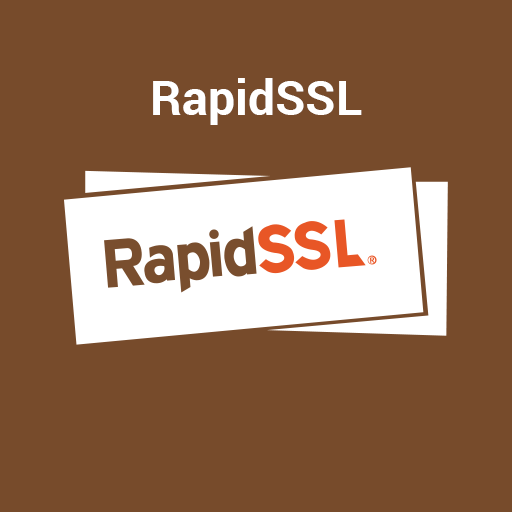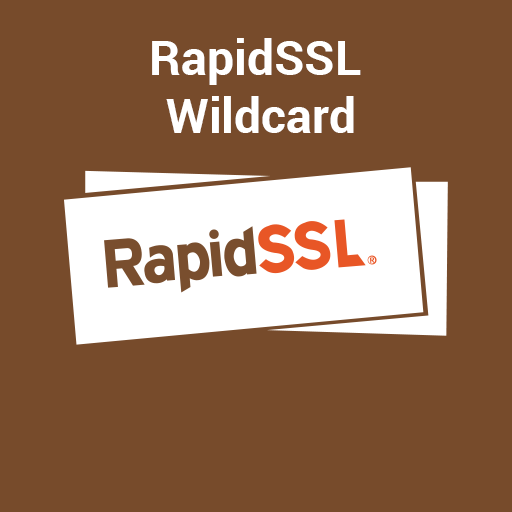Understanding RapidSSL Certificates
What is RapidSSL?
RapidSSL is a well-known provider in the realm of online security, offering cost-effective and efficient SSL certificate solutions. Primarily focused on Domain Validation (DV) certificates, RapidSSL ensures that even small websites or businesses can secure their online transactions and user data swiftly. Since its acquisition by DigiCert in 2017, RapidSSL has leveraged advanced technology to offer enhanced security features while maintaining its hallmark of quick issuance and reliability.
The brand is synonymous with speed and simplicity, making it a preferred choice for businesses that need immediate certificate issuance without the hassle of extensive documentation. The straightforward verification process validates the domain ownership, allowing the SSL certificates to be issued within minutes. This rapid deployment capability not only enhances user trust but also fortifies website security promptly.
How does RapidSSL work?
RapidSSL operates on a streamlined model designed to expedite the process of securing websites. Once a domain owner applies for a certificate, RapidSSL verifies the ownership through automated domain validation techniques. After successful verification, the certificate is issued almost instantaneously—often within minutes. This process involves minimal user intervention and does not require detailed paperwork or organizational credentials, which significantly cuts down the waiting time associated with other types of SSL certificates.
The issued certificates come with strong encryption standards, including up to 256-bit encryption and a 2048-bit key size. These features ensure that all data transmitted between web servers and browsers remains private and integral. Moreover, every certificate includes unlimited free reissues and server licensing, providing flexibility and security assurance throughout its validity period.
Benefits of Choosing RapidSSL for Your Website
Affordability and Value
In terms of cost-effectiveness, RapidSSL stands out from the competition by offering low-priced yet reliable SSL certificates. This makes it an ideal solution for individuals, blogs, personal sites, or small businesses looking to secure their online presence without breaking the bank. Additionally, eSSL, one of the trusted resellers, provides these certificates at competitive rates.
The affordability paired with high browser compatibility ensures that users do not face any issues regarding certificate recognition across different platforms including mobile devices. This widespread acceptance helps in maintaining smooth site functionality while safeguarding visitor information effectively.
Ease of Use and Quick Setup
The hallmark of RapidSSL’s service is its ease of use—from purchasing to installation. The entire process is designed keeping non-technical users in mind; thus it requires no special skills or extensive IT knowledge to implement an SSL certificate on your website. With tools like automatic CSR generation and simple installation instructions available right at your fingertips, setting up a RapidSSL certificate is a hassle-free experience.
Strong Security Features
Beyond affordability and ease-of-use, RapidSSL certificates provide robust security features that ensure the safety of online transactions and data exchanges. With up to 256-bit encryption and a 2048-bit key size, RapidSSL offers strong protection against cyber threats, making it a reliable choice for securing your website.
The Installation Process of RapidSSL Certificates
Step-by-Step Guide to Installing RapidSSL
Installing a RapidSSL certificate is known for its simplicity and speed, catering especially to those who value efficiency. Here’s a quick guide on how to get your SSL certificate up and running:
- Purchase the Certificate: Choose the appropriate RapidSSL product, either a standard or wildcard certificate depending on your needs, and complete the purchase.
- Domain Validation: Next, you’ll need to prove ownership of the domain. This is typically done via email verification, DNS record, or file upload methods provided during the setup process.
- Certificate Issuance: Once validation is complete, which can be as quick as within minutes, the SSL certificate is issued.
- Installation: Install your SSL certificate on your web server. This might vary slightly depending on your server type but generally involves importing your certificate files and configuring them appropriately within your server settings.
If you’re using a hosting platform with control panel support like cPanel or Plesk, they often provide tools that automate much of this process, further simplifying SSL installation.
Common Issues and Troubleshooting
While most installations go smoothly thanks to the streamlined process RapidSSL offers, you might encounter issues such as browser warnings or server errors. Here are some common problems and their solutions:
- Mismatched Domain Names: Ensure that the domain name on your certificate matches exactly with the URL accessed by users. Even subdomains must be correctly specified if not covered under a wildcard certificate.
- Incomplete Certificate Chain: You may need to install intermediate certificates in addition to your primary certificate to establish trust with browsers.
- Certificate Not Trusted Error: This usually occurs if older devices or browsers don’t recognize RapidSSL’s root certificates. Updating client systems can resolve these issues.
If problems persist after these checks, contacting RapidSSL’s support team can provide direct assistance tailored to specific situations.
RapidSSL and E-commerce: Securing Online Transactions
The Importance of SSL for Online Stores
In today’s digital age, securing online transactions is paramount for any e-commerce business. An SSL/TLS certificate encrypts data exchanged between a customer’s browser and an e-commerce site, ensuring sensitive information like credit card numbers and personal details are transmitted securely. The presence of an SSL certificate (indicated by HTTPS in the address bar) also reassures customers that their data is safe from interception or fraud.
How RapidSSL Enhances Customer Trust
Apart from encryption security, RapidSSL also contributes significantly towards building customer trust—a crucial element in e-commerce success. By displaying the RapidSSL Site Seal on their website, retailers can visually assure customers that their transactions are secure.
This level of trust not only helps in reducing cart abandonment rates but also boosts consumer confidence leading to higher conversion rates.
Moreover, RapidSSL’s reputation as a reliable SSL provider ensures that store owners are leveraging one of the most recognized brands in cybersecurity for their encryption needs.
Comparing RapidSSL with Other SSL Certificate Providers
Differences in Features and Prices
When comparing RapidSSL against other providers it becomes evident that RapidSSL focuses heavily on providing fast, economical solutions primarily through its Domain Validated (DV) certificates.
Here’s how it stacks up:
| Feature | RapidSSL Standard | Competitor DV Certificates |
|---|---|---|
| Encryption Strength | 256-bit | 256-bit |
| Issuance Speed | Minutes | 5-10 minutes depending on provider |
| Warranty | $10,000 | Typically $10,000-$50,000 |
Why Choose RapidSSL Over Competitors?
Choosing RapidSSL over competitors boils down mainly due to two factors: speed and cost-effectiveness.
For small business owners and individual entrepreneurs looking to quickly deploy basic yet secure encryption without breaking the bank, RapidSSL emerges as an ideal solution.
Furthermore, the brand recognition associated with displaying the trusted site seal adds an invaluable trust factor which can directly influence buyer decisions positively, thereby impacting overall sales performance positively.
-
RapidSSL Certificate
$10.13/yearA standard, yet popular Domain Validated (DV) certificate due to its low cost and rapid issuance process. With 99% of browser recognition and its encryption strength of 256-bit, it’s an ideal solution for protecting a single, entry-level site. View Full Product Details
-
RapidSSL Wildcard Certificate
$93.15/yearRapidSSL WildCard SSL Multi Domain: Unmatched Security for Your Business Protecting your website and its sensitive data is crucial in today’s digital landscape. The RapidSSL WildCard SSL certificate is your ultimate solution for achieving unparalleled security. Designed to ensure peace of mind and trust for small and medium-sized business owners, this certificate offers a comprehensive security solution that covers all your subdomains under a single certificate. Experience Comprehensive Protection with RapidSSL WildCard SSL Unlike conventional security measures, the RapidSSL WildCard certificate offers […]


